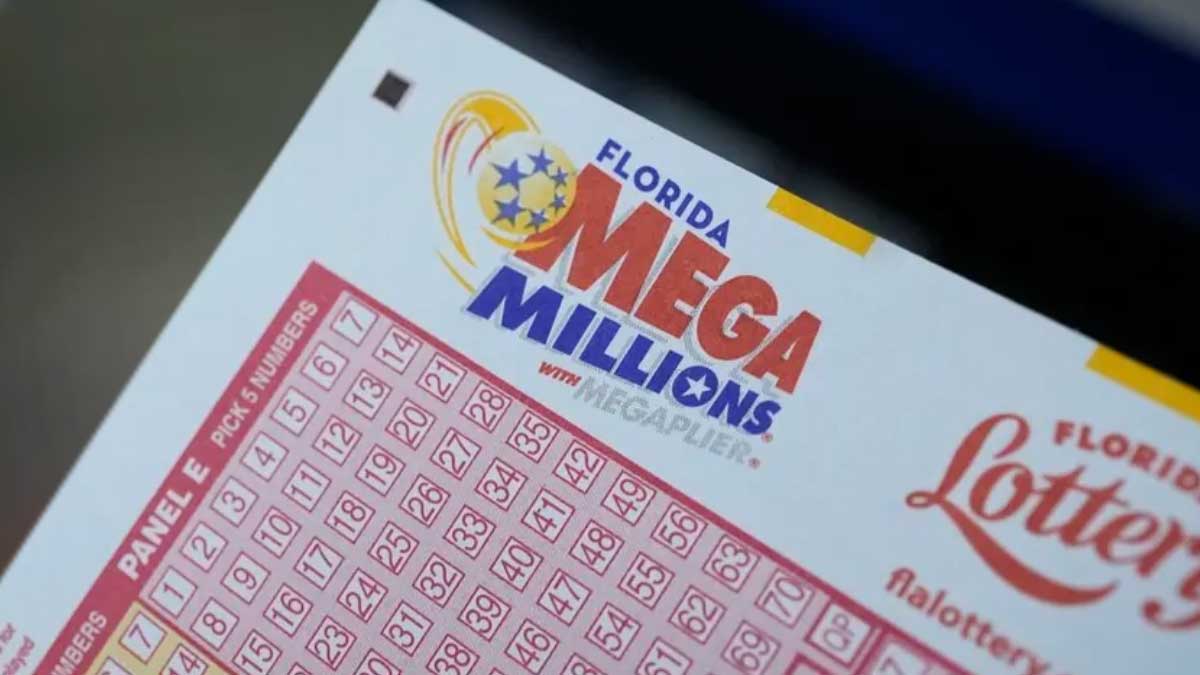- Home
- Billionaires
- Investing Newsletters
- 193CC 1000
- Article Layout 2
- Article Layout 3
- Article Layout 4
- Article Layout 5
- Article Layout 6
- Article Layout 7
- Article Layout 8
- Article Layout 9
- Article Layout 10
- Article Layout 11
- Article Layout 12
- Article Layout 13
- Article Layout 14
- Article Sidebar
- Post Format
- pages
- Archive Layouts
- Post Gallery
- Post Video Background
- Post Review
- Sponsored Post
- Leadership
- Business
- Money
- Small Business
- Innovation
- Shop
Recent Posts
Mega Millions Jackpot Hits $670 Million: After-Tax Winnings

The Mega Millions jackpot has soared to an astonishing $670 million, making it the fifth-largest lottery prize of the year. This impressive total comes after no tickets matched all six numbers—12, 14, 26, 48, 52, and the gold Mega Ball 21—in Tuesday night’s drawing. While the massive sum has captured national attention, the eventual winner will take home a far smaller amount once taxes are applied.
The winner will have two payout options to choose from. They can opt for the full $670 million, spread across 30 annual payments. Under this plan, they would receive approximately $22.33 million annually before taxes. However, after accounting for a top federal marginal tax rate of 37%, the annual payment would be reduced to roughly $14.1 million. Alternatively, they can take a lump sum payout of $317.8 million, a choice many winners prefer. This amount is subject to a mandatory 24% federal tax withholding, leaving $241.5 million immediately. Depending on the winner’s total taxable income, additional taxes could apply, lowering the final sum to approximately $200.2 million.
State taxes also play a crucial role in determining the winner’s final payout. Residents of states like Texas, Florida, and California are fortunate to face no additional state taxes on lottery winnings. However, winners in states like New York could see a significant portion of their prize reduced, as the state imposes a tax rate of up to 10.9% on lottery earnings.
The odds of winning the Mega Millions jackpot remain astronomically low, standing at 1 in 302.6 million. These odds are even less favorable than those of the Powerball jackpot, which offers a 1 in 292.2 million chance of winning. Despite this, millions of hopeful players continue to buy tickets, dreaming of beating the odds and securing a fortune.
This Friday’s drawing has drawn extra attention as it coincides with Friday the 13th, a date often considered unlucky. Mega Millions has highlighted this coincidence, branding it the “Friday the 13th” draw. Interestingly, the last big winner on a Friday the 13th occurred on January 13, 2023, when a Maine ticket holder claimed a $1.348 billion prize, the third-largest jackpot in Mega Millions history.
Mega Millions has had a remarkable year with several massive payouts. In September, a single ticket holder from Texas won an $800 million jackpot, making it the second-largest prize of 2023. Earlier, in March, a New Jersey resident claimed a $1.13 billion jackpot, which remains the year’s biggest win. These enormous prizes demonstrate the life-changing potential of the lottery, even as winners face considerable tax obligations.
Winning such a monumental jackpot is a life-altering experience, but it also requires careful planning. The significant tax liabilities underscore the importance of consulting with financial advisors and tax professionals to manage the windfall effectively. Whether choosing a lump sum or annual payments, winners must consider their long-term financial goals to make the most of their prize.
As excitement builds for Friday’s drawing, millions of Americans are purchasing tickets and envisioning what life could be like with hundreds of millions of dollars. Although the odds remain daunting, the dream of winning keeps players engaged. For one lucky individual, this Friday the 13th could mark the beginning of an extraordinary journey. Until then, the nation waits to see if the jackpot will finally find its winner.
Recent Posts
Categories
- 193 Countries Consortium Partner1
- 193cc Digital Assets2
- 5G1
- Aerospace & Defense48
- AI37
- Arts3
- Banking & Insurance11
- Big Data3
- Billionaires1,261
- Boats & Planes1
- Business332
- Careers13
- Cars & Bikes79
- CEO Network1
- CFO Network17
- CHRO Network1
- CIO Network1
- Cloud10
- CMO Network18
- Commercial Real Estate7
- Consultant1
- Consumer Tech194
- CxO1
- Cybersecurity73
- Dining1
- Diversity, Equity & Inclusion4
- Education7
- Energy8
- Enterprise Tech29
- Events11
- Fintech1
- Food & Drink2
- Franchises1
- Freelance1
- Future Of Work2
- Games149
- GIG1
- Healthcare79
- Hollywood & Entertainment203
- Houses1
- India’s 1000 Richest1
- Innovation46
- Investing2
- Investing Newsletters4
- Leadership65
- Lifestyle11
- Manufacturing1
- Markets20
- Media327
- Mobile phone1
- Money13
- Personal Finance2
- Policy569
- Real Estate1
- Research6
- Retail1
- Retirement1
- Small Business1
- SportsMoney42
- Style & Beauty1
- Success Income1
- Taxes2
- Travel10
- Uncategorized13
- Vices1
- Watches & Jewelry2
- world's billionaires1,230
- Worlds Richest Self-Made Women2
Related Articles
HBO and Cablevision Founder Charles Dolan Dies at 98
Charles Dolan, the visionary founder of HBO and Cablevision, passed away at...
By 193cc Agency CouncilDecember 30, 2024Bitcoin Reaches $100K, But Altcoins Outperform in 2024
Bitcoin’s performance in 2024 was nothing short of historic, as it crossed...
By 193cc Agency CouncilDecember 28, 2024Apple Unveils Limited-Edition Year of the Snake AirTag in Japan
In an announcement that will likely leave Apple enthusiasts excited but also...
By 193cc Agency CouncilDecember 27, 2024Mega Millions Jackpot Hits $1.15B; Winner Faces Major Taxes
The Mega Millions jackpot has soared to an estimated $1.15 billion, following...
By 193cc Agency CouncilDecember 26, 2024















Leave a comment